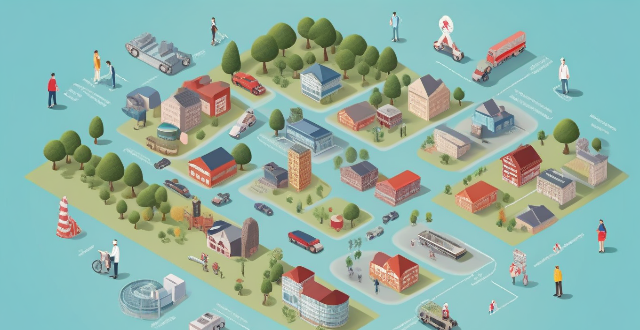Preparing for potential medical emergencies is crucial when traveling to remote areas. Research the region, pack a first aid kit, stay informed about health risks, have a communication plan, get travel insurance, learn self-help skills, and take care of your health.

How to Prepare for Potential Medical Emergencies While Traveling to Remote Tourist Areas
Traveling to remote tourist areas can be an exciting adventure, but it also comes with potential risks, including medical emergencies. To ensure your safety and well-being, it's essential to prepare for these situations before you embark on your journey. Here are some tips on how to do so:
Research the Area
Before you travel, research the area you'll be visiting. Find out if there are any health concerns or common illnesses in the region. This information can help you pack appropriately and take necessary precautions.
- Check for any vaccinations required or recommended for the area.
- Look up the local hospitals, clinics, and pharmacies.
- Learn about the availability of emergency services such as ambulances and helicopter airlifts.
Pack a First Aid Kit
A well-stocked first aid kit is crucial when traveling to remote areas. Make sure your kit includes:
- Bandages of various sizes
- Antiseptic wipes or solution
- Gauze pads and rolls
- Medical tape or adhesive bandages
- Pain relievers like ibuprofen or acetaminophen
- Antihistamines for allergic reactions
- Antibiotic ointment for cuts and scrapes
- Tweezers for removing splinters
- Thermometer to monitor fever
- Prescription medications (if needed)
Stay Informed About Local Health Risks
Keep yourself informed about any local health risks such as:
- Infectious diseases like malaria, dengue fever, or Zika virus.
- Environmental hazards like venomous animals, poisonous plants, or extreme weather conditions.
- Water quality issues that could lead to waterborne illnesses.
Have a Plan for Communication
In case of an emergency, having a way to communicate is vital. Consider the following:
- International roaming or a local SIM card for your phone.
- Satellite phones or GPS devices with SOS features.
- Emergency apps that can send your location to emergency services.
Be Prepared with Travel Insurance
Make sure you have travel insurance that covers medical emergencies. Check what's included in your policy:
- Medical evacuation coverage in case you need to be transported to a better-equipped facility.
- Repatriation of remains in the event of a fatality.
Know Basic Self-Help Skills
It's always helpful to know basic self-help skills such as:
- CPR (Cardiopulmonary Resuscitation)
- First Aid techniques like treating wounds, burns, or fractures.
- Wilderness survival skills if applicable to your destination.
Keep Your Health in Mind
Lastly, take care of your own health by:
- Staying hydrated and eating nutritious meals.
- Getting enough rest and avoiding overexertion.
- Using insect repellent to avoid mosquito bites.
- Drinking only bottled or purified water.
- Avoiding raw or undercooked food.
By following these steps, you'll be better prepared to handle potential medical emergencies while traveling to remote tourist areas. Remember, preparation is key to ensuring a safe and enjoyable trip.